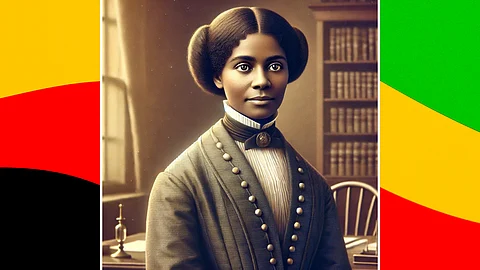
- Home
- About Us
- SOULIVITY TODAY Radio Show!
- COMMUNITY HUB
- GO SHOP by Soulivity!
- ColumnsColumns
- CultureCulture
- Lifestyle
- Contact Us!

Born on February 8, 1831, in Delaware, Dr. Rebecca Lee Crumpler was raised by her aunt in Pennsylvania, who often cared for sick neighbors. This early exposure to healthcare inspired her to pursue a career in medicine. In a time when both racial and gender discrimination were rampant, Crumpler defied the odds. She first worked as a nurse before gaining admission to the New England Female Medical College in Boston. In 1864, she became the first Black woman in the United States to earn a medical degree.
After earning her degree, Dr. Crumpler practiced medicine in Boston and later in Richmond, Virginia, following the end of the Civil War. There, she worked with the Freedmen’s Bureau, providing medical care to newly emancipated African Americans who had little to no access to healthcare. Despite facing severe racism and sexism, she remained dedicated to serving her patients.
Dr. Crumpler was not only a physician but also an author and healthcare advocate. In 1883, she published A Book of Medical Discourses, making her one of the first Black medical authors in the U.S. The book provided medical guidance for women and children, particularly focusing on disease prevention and infant care.
Despite her accomplishments, Crumpler faced relentless discrimination from both the medical community and society. Many white doctors refused to work with her, and some pharmacists even declined to fill her prescriptions. Yet, she persevered, continuing to treat patients in need and breaking barriers for future generations of Black medical professionals.
Dr. Crumpler passed away on March 9, 1895, but her impact on healthcare and racial equality in medicine remains significant. Today, she is recognized as a pioneer who paved the way for Black women in medicine, inspiring future generations to pursue careers in healthcare.
As we celebrate Black History Month, we must remember not only the widely known figures but also those whose contributions were overlooked for too long. Dr. Rebecca Lee Crumpler’s perseverance, dedication, and pioneering achievements deserve recognition and honor. Her story serves as a reminder of the power of resilience and the importance of advocating for healthcare equity for all.
